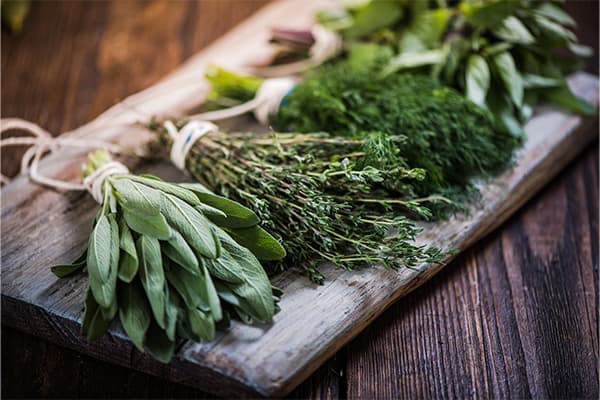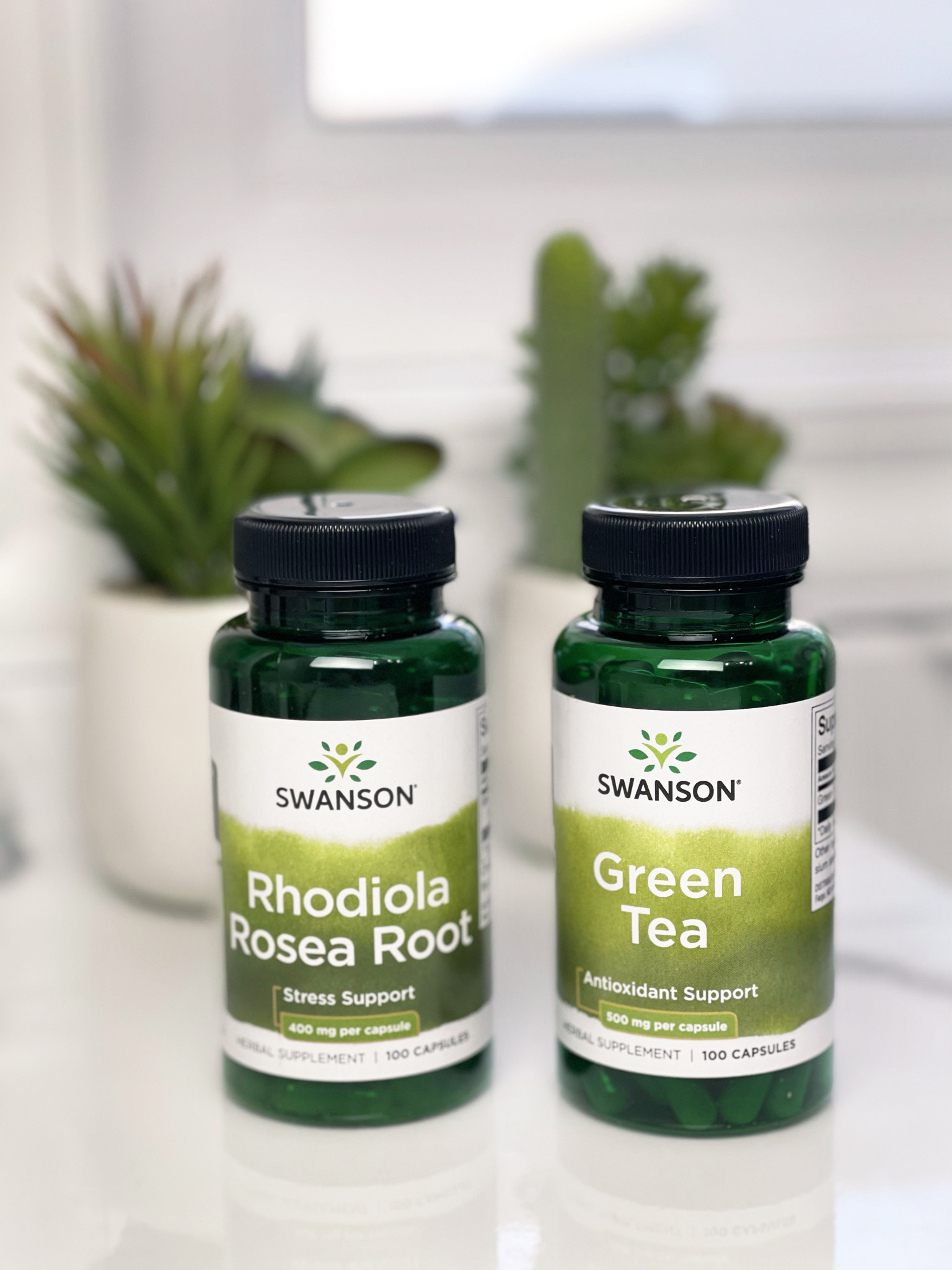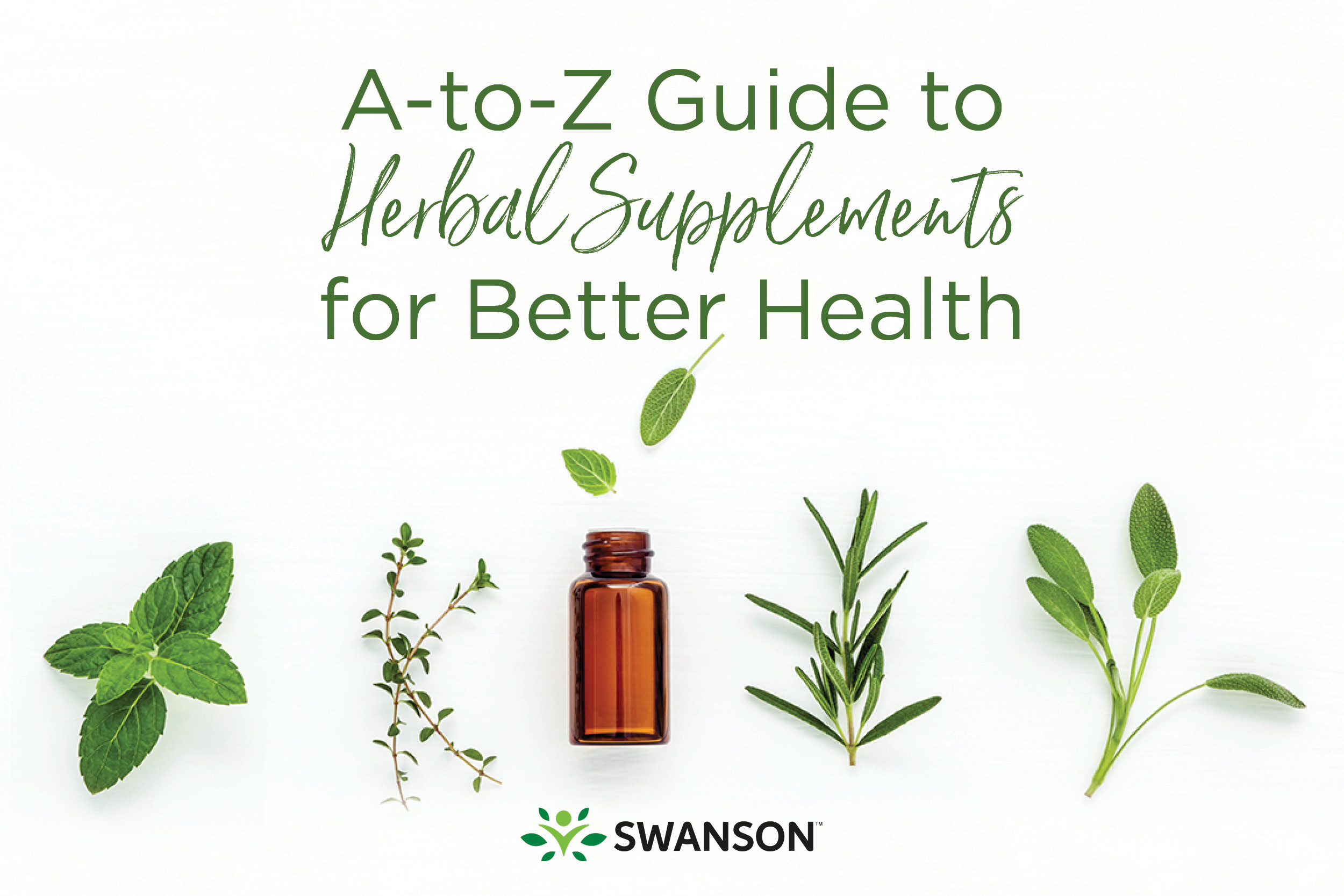What Are Herbal Supplements?
Most of us are familiar with taking vitamin and mineral supplements to help plug any nutritional gaps in otherwise healthy diets, but you may be wondering what are herbal supplements exactly? Simply put, they are supplements which are derived from the berries, flowers, seeds, roots and leaves or even the oils of particular plants1 traditionally believed to hold healing properties.
Of course, not every plant-based supplement can be considered “herbal.” So, what is considered an herbal supplement? Herbs are described as being plants whose flowers, seeds or some other part has traditionally been used for food flavoring, for perfume (aromatherapy) or particularly for health benefits.2
These supplements can come in a variety of forms, such as pills or capsules, delicious gummies or even as teas or drink powders.3 These versatile herbs and their benefits can be enjoyed in almost any formula you can imagine, so what are the most commonly used herbal supplements?
To answer that question, let’s look at some of our most popular herbal products.
Examples of Herbal Supplements
Herbal supplements come from a wide range of plant sources, some with names which may be more familiar than others. Here is a list of the top 10 herbal supplements you may want to try for yourself:
- Ashwagandha - Considered among the top herbal supplements, ashwagandha has been used traditionally for thousands of years in various cultures for its benefits as a cognitive- and stress-support tonic.4 It can be taken in a variety of forms, including gummies and capsules.
- Berberine – Counted by some as “one of the most effective” herbal supplements available, this bioactive compound is made from the family of berberis shrubs and has been used for centuries by Chinese herbalists, mosy commonly to support healthy blood glucose levels.5 Today you can find berberine offered in capsule form by itself, or in a combination formula for added benefit.
- Boswellia – The resin from this tree has been used over the centuries by cultures across Asia and Africa for a host of health benefits, including those related to digestive health and joint comfort.6 It can be ingested in the form of capsules or used externally as a cream.
- Cranberry – Native to North America, these popular berries grow on vines and have long been popular for urinary tract support and vitamin C content. Cranberries offer nutritional benefits including vitamins, minerals and antioxidants such as quercetin.7 The benefits of cranberries can be enjoyed via juice supplements or in the form of softgels.
- Cinnamon – This well-known spice comes from the inner bark of trees in the cinnamomum family which grow in South America, the Caribbean and parts of South Asia such as Sri Lanka. A hugely popular culinary spice, cinnamon has been used for thousands of years to support cholesterol and blood sugar health, in addition to adding a sweet flavor to many holiday dishes.8 You can get your daily dose of cinnamon in powder form or by taking a capsule.
- Elderberry – Referring to the purple fruit of the elder tree, this herbal supplement has been used throughout the world for its purported effects on immune health and respiratory function.9 Elderberry supplements are available as veggie capsules, extract syrups or as delightfully flavored gummies.
- Ginger – This aromatic spice delivers a unique zing to both dishes and beverages in addition to providing a host of health benefits ranging from digestive support to antioxidant protection against free radicals.10 Enjoy ginger in crystalized form, as a soothing tea or in a capsule. You can even get your daily ginger in a delicious gummy or sprinkled into your favorite recipe.
- Hawthorn – A member of the rose family, this flowering shrub offers a wealth of benefits, including flavonoids which provide important antioxidant support against oxidative stress. Hawthorn is generally used to promote heart health and a calm mood.11 As an herbal supplement, hawthorn can be taken in the form of capsules or in a liquid extract.
- Lion’s Mane – Found growing on the trunks of hardwood trees, this traditional mushroom has been used for antioxidant defense and cognitive support. Lion’s Mane can be enjoyed as a culinary dish, in hot tea or taken as an herbal supplement in capsule or powder form.12
- Turmeric – This yellow spice is known for lending its color to curry and has been a staple in south Asian cuisine, in addition to Ayurvedic traditions, for centuries to support joint and digestive comfort. Turmeric is sourced from the roots of the curcuma plant and belongs to the same family as ginger.13
Of course, there are more herbal supplements available in a variety of formulations which are used for many different health benefits, such as saw palmetto or even garlic. The uses for herbal supplements can be as diverse as the very plants they come from, but generally they will fit into one or more of a few broad categories.
Let’s explore what some of these herbal supplements are used for.
What Are Herbal Supplements Used For?
Herbal supplements come in a wide array of forms and from an even larger array of plants. Likewise, their uses are as many and diverse as the traditions which first discovered them. Here are some of the broader categories for which herbal supplements are commonly used:
Stress Support
Adaptogenic herbs are those plants which are used to promote a healthy response to stress or fatigue within the body.14 Common herbal supplements taken for adaptogenic support include ashwagandha, eleuthero root and Holy Basil.
Heart Health
Cardiovascular health is very important to your overall wellbeing. It’s no wonder then that more and more people are looking into how they can support heart health with herbal supplements. Some of the most common herbs used for heart health include hawthorn, cinnamon, garlic, ginger, curcumin (turmeric) and berberine.
Immune Health
When it comes to bolstering your immune health, there are several important vitamins and minerals which are well-known for their support. But herbal supplements are also available which can lend powerful support to your immune system year-round. Some of the more popular herbs for immune health include elderberry, astragalus, garlic, echinacea and the mushroom cordyceps.
Digestive Health
Digestive health is a critical part of overall wellness as it is connected to other systems throughout the body such as immune health and even mental wellness. Herbal supplements have been used around the world for centuries to bolster digestive health, including ginger, aloe and chamomile.
Cognitive Health
As part of the aging process, many experience occasional forgetfulness or other cognitive concerns. Herbalists have long valued certain plants for their ability to assist with these challenges. Herbal supplements which are taken to improve focus, memory and other cognitive functions include turmeric, ginkgo biloba, ashwagandha, gotu kola, Korean ginseng and even lemon balm.
Standardized vs. Full Spectrum
When it comes to herbal supplements, many will come as either standardized or full-spectrum formulas. What’s the difference? Standardized formulas are those in which a specific quantity of a particular ingredient can be found in the supplement. For example, in the case of berberine, you could select a formula containing berberis root standardized to 97% berberine HCI.
However, for this herb, it’s also possible to select a full-spectrum form such as barberry root bark which contains the ingredient berberine, as well as other beneficial phytocompounds all in a minimally processed state. While both forms of the herbal supplement offer health benefits, the decision on which to take is up to the individual.
Are Herbal Supplements Safe?
The FDA categorizes herbal supplements the same as food, rather than drugs, so the basic regulations covering prescription drugs are not applied to herbal supplements.3 That said, the herbs we’ve looked at today are generally considered safe for most adults to use and have been enjoyed for their benefits by millions of people over the course of many years. At Swanson Health Products, each supplement and ingredient we offer is subjected to strenuous review to ensure its purity and safety before being offered to the public for consumption. As a general rule, we always recommend that you consult with a healthcare provider before adding any supplements to your regimen.
Herb is the Word
As you consider the many options available to help support and promote your own personal health goals, be sure to ask yourself if any of the herbal supplements we’ve explored above may be helpful to you. After all, these supplements deliver a plant-based boost to many bodily functions in a way that you can feel confident about.
Remember, when it comes to nature-sourced wellness, herb is the word!
You be well, now.
Swanson
*These statements have not been evaluated by the Food and Drug Administration. These products are not intended to diagnose, treat, cure, or prevent any disease.
Sources
1. Herbal Supplements. Cleveland Clinic. Read source
2. Herb. Merriam-Webster Dictionary. Read source
3. Herbal Medicine. Johns Hopkins Medicine. Read source
4. An Overview on Ashwagandha. African Journal of Traditional and Alternative Medicines. Read source
5. Berberine. HealthLine. Read source
6. What is Boswellia? VeryWellHealth. Read source
7. Health Benefits of Cranberries. WebMD. Read source
8. What Are the Health Benefits of Cinnamon? Medical News Today. Read source
9. Elderberry. National Center for Complementary and Integrative Health. Read source
10. Ginger Benefits. Johns Hopkins Medicine. Read source
11. Hawthorn. WebMD. Read source
12. Lion’s Mane Mushroom. Mushroom Health Foundation. Read source
13. 7 Health Benefits of Turmeric. Cleveland Clinic. Read source
14. What Are Adaptogens? Cleveland Clinic. Read source



